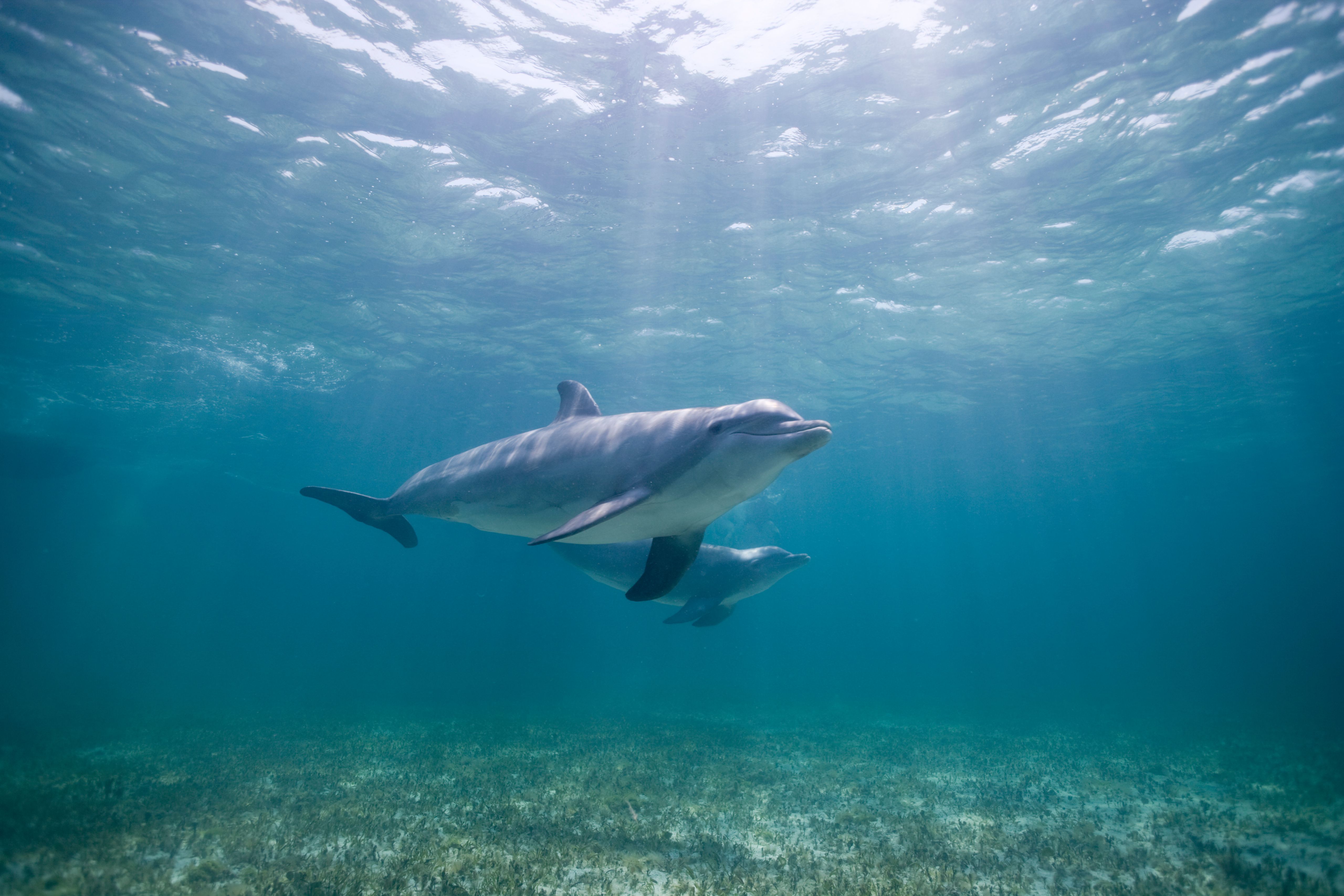Researchers document Florida dolphin with avian influenza
Discovered in 2022, this bottlenose mammal was the first cetacean in North America to test positive for the H5N1 virus.
Paul/stock.adobe.com

A newly published study documents the case of a bottlenose dolphin that was found with the highly pathogenic avian influenza virus (HPAI) in Florida. The discovery was made through a postmortem examination at the University of Florida College of Veterinary Medicine (UF CVM) more than 2 years ago.1
On March 29, 2022, the Florida Fish and Wildlife Conversation’s Marine Mammal Pathobiology Laboratory (FWC MMPL) notified the University of Florida’s Marine Animal Rescue Team about a distressed dolphin in Dixon County, Florida. The dolphin later died and was transported to UF CVM for a necropsy.1 The team identified the virus with brain and tissue samples collected from the dolphin.
According to a news release,2 an initial analysis performed at the zoological medicine diagnostic laboratory at UF ruled out other potential agents and, with help from the Bronson Animal Disease Diagnostic Laboratory in Kissimmee, Florida, the presence of HPAI in the lungs and brains of the dolphin was verified.
The results were also sent to the National Veterinary Services Laboratory in Ames, Iowa to characterize the virus subtype and pathotype. The National Veterinary Services Laboratory confirmed the first to be the HPAI A (H5N1) Virus of HA clad 2.3.4.4b.and subsequent tissue was then analyzed at the Biosafety Level 3 enhanced laboratory at St. Jude Children’s Research Hospital.
Allison Murawski, DVM, a former intern with UF’s aquatic animal medicine program, and fellow investigators authored a study based on these findings that was recently published in Communications Biology,1 and created a case report on the dolphin as part of her research project. Murawski traveled to Memphis, Tennessee, to work with Richard Webby, PhD, director of the World Health Organization collaborating Center for Studies on the Ecology of Influenza in Animals and Birds, who also served as a corresponding author for the published paper.
“This investigation was an important step in understanding this virus and is a great example where happenstance joins with curiosity, having to answer the ‘why’ and then seeing how the multiple groups and expertise took this to a fantastic representation of collaborative excellence,” said Mike Walsh, DVM, an associate professor of aquatic animal health, and Murawski’s faculty advisor, in the release.2
The Webby Lab team investigates cases of avian influenza in many species and plays a key part in determining where the virus could have originated from, as well as unique RNA characteristics or mutations to suggest its ability to infect other mammals, and how they can track the virus from this source. The investigators sequenced genomes from local birds and then looked at viruses isolated from Northeast seal populations at this time, Webby and the research teams do not know how the dolphin contracted the virus and more research needs to be done.
The investigators noted they believe that the detection of the H5N1 virus should emphasize the importance of following proper biosafety protocols when it comes to working with marine mammals who are stranded. The high viral loads that were detected within the brain of this dolphin demonstrated to researchers the value of routine postmortem marine mammal examinations.1 Because there is no end in sight for the outbreak, the authors said testing for the avian influenza viruses should be part of routine health monitoring when responding to a marina mammal stranded, especially if that animal is presenting with any neurological signs.
References
- Murawski A, Fabrizio T, Ossiboff R, et al. Highly pathogenic avian influenza A(H5N1) virus in a common bottlenose dolphin (Tursiops truncatus) in Florida. Communications biology. 2024;7(1). https://doi.org/10.1038/s42003-024-06173-x
- Carey S. Report recounts Florida dolphin found with highly pathogenic avian flu. The University of Florida Academic Health Center . Published April 26, 2024. Accessed May 1, 2024. https://ufhealth.org/news/2024/report-recounts-florida-dolphin-found-with-highly-pathogenic-avian-flu